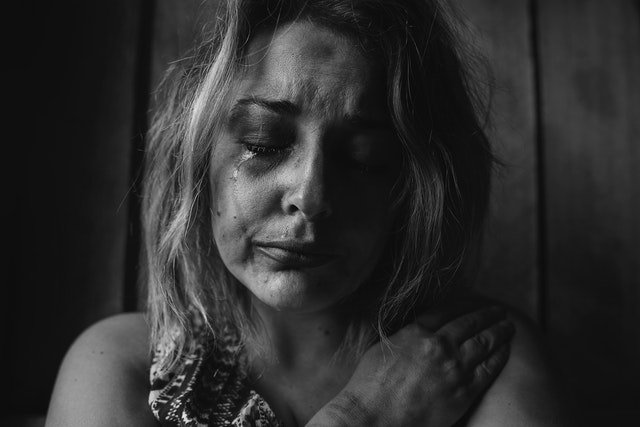
The phrase “trauma” has become more common in society, with people on TikTok complaining about a celebrity’s new hairstyle or joking that they have post-traumatic stress disorder after watching the Presidential debates.
It isn’t funny to joke about, though, and people use it in inappropriate situations as well.
While all types of human experiences are legitimate, not all of them are equal.
So, what is trauma, exactly?
What is trauma?
Trauma refers to an event or experience that is life-threatening or feels life-threatening and leaves an individual feeling helpless and out of control. Traumatic experiences can cause physical, emotional, and psychological symptoms.
Dr. Amy Morin, a therapist and author
Trauma is not limited to physical or sexual abuse. It can also include events such as car accidents, natural disasters, or witnessing a violent event.
“Any experience that leaves someone feeling overwhelmed and alone can be traumatic,” Morin said.
Interestingly, not all people who experience a traumatic event will go on to develop post-traumatic stress disorder (PTSD). “Some people are able to process the experience and move on,” Morin said. “Others may struggle for years.”
So, what isn’t trauma?
“Trauma is not synonymous with bad,” Morin said. “People can have positive experiences that are also incredibly life-changing.”
It’s also known that trauma and difficult experiences can transfrom us.
Therapists often use the term “trauma-informed” to describe an approach that takes into account the potential impact of trauma on their clients.
“Trauma-informed care is about understanding that not everyone reacts to events in the same way,” Morin said. “It’s about being patient and understanding that someone may not be able to talk about their trauma right away.”
Trauma-informed care is also about providing a safe space for clients to explore their experiences. “Some people may never want to talk about the event that traumatized them,” Morin said. “Others may want to talk about it over and over again.”
It’s important to remember that trauma is not a diagnosis. “Trauma is not a mental health condition,” Morin said. “It’s an experience that can cause physical, emotional, and psychological symptoms.”
How do you know if trauma is real?
“If someone is struggling to cope with an event or experience that happened in their life, it’s likely that the experience was traumatic,” Morin said.
Trauma can cause a variety of symptoms, including flashbacks, intrusive thoughts, and nightmares.
“People may also experience physical symptoms such as headaches, nausea, or chest pain,” Morin said.
If you think you may be struggling with trauma, it’s important to seek help from a therapist.
“Therapy can provide a safe space for someone to process their experiences and learn how to cope with the aftermath of trauma,” Morin said.
Trauma is real, and it can have a lasting impact on people’s lives.
If you are struggling with trauma, it’s important to seek help from a therapist. They can provide a safe space for you to process your experiences and learn how to cope with the aftermath of trauma.
Can you be traumatized without trauma?
“Yes,” Morin said. “Some people may develop symptoms of trauma as a result of living in a traumatic environment.”
For example, someone who grows up in a home where they experience violence or abuse may develop symptoms of trauma. “Trauma is not limited to one specific type of experience,” Morin said.
It’s important to remember that not everyone who experiences a traumatic event will go on to develop PTSD. “Some people are able to process the experience and move on,” Morin said. “Others may struggle for years.”
Why am I denying my trauma?
There can be a number of reasons why someone might deny their trauma. “Some people may not want to face the pain that comes with acknowledging the event,” Morin said. “Others may feel like they’re to blame for what happened.”
It’s important to remember that trauma is not a diagnosis. “Trauma is not a mental health condition,” Morin said. “It’s an experience that can cause physical, emotional, and psychological symptoms.”
If you are struggling to come to terms with a traumatic event, it’s important to seek help from a therapist. They can provide a safe space for you to process your experiences and learn how to cope with the aftermath of trauma.
What do you do for unresolved trauma?
There are numbers of self-care strategies that can be helpful for people who are struggling with unresolved trauma. Some examples include:
- Practicing yoga or meditation
- Eating a healthy diet
- Getting enough sleep
- Connecting with supportive people
- Engaging in expressive therapies, such as art therapy or journaling
Trauma-informed care is important for everyone, not just people who have experienced a traumatic event.
It’s about providing a safe space for people to explore their experiences and learn how to cope with the aftermath of trauma.
What happens if trauma is not resolved?
If trauma is not resolved, it can have a lasting impact on people’s lives. “Trauma can cause physical, emotional, and psychological symptoms that can last for years,” Morin said.
It’s important to remember that not everyone who experiences a traumatic event will go on to develop PTSD.
“Some people are able to process the experience and move on,” Morin said. “Others may struggle for years.”
Summary
Trauma is real and can have a lasting impact on people’s lives.
If you are struggling with trauma, it’s important to seek help from a therapist. They can provide a safe space for you to process your experiences and learn how to cope with the aftermath of trauma.
There are also a number of self-care strategies that can be helpful for people who are struggling with unresolved trauma.



